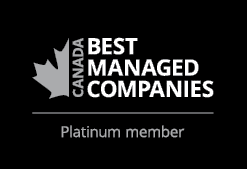At THINK 2024, hosted by Cowan Benefits Ltd., Lianne Clarke, Principal and Vice President of Wellness and Disability Innovation and Growth, delivered an eye-opening presentation on healthy weight management in the workplace. With nearly three decades of experience in employee wellness and disability management, Lianne offered practical insights into how organizations can integrate health-focused strategies into their cultures and make meaningful impacts on employee wellness.
A Cultural Shift in Workplace Wellness
Lianne opened by reflecting on the varying levels of commitment employers show toward wellness. While some organizations “check the box” with wellness fairs or webinars, others embed wellness into their very DNA. These companies involve senior leadership, allocate resources, and view all organizational changes through the lens of employee health.
The pandemic, as she noted, sparked a heightened awareness of mental health, which many organizations embraced by developing dedicated strategies. However, Lianne encouraged organizations to expand this focus to include another pressing health challenge—obesity.
Obesity: An Overlooked Driver of Workplace Costs
Lianne emphasized that obesity is a chronic and complex condition, not merely a result of lifestyle choices. Obesity has far-reaching implications for employee health and workplace costs, making it a critical issue for employers to address.
Obesity stems from a combination of factors:
- Genetics: Up to 70% of obesity risk is genetic, affecting hormones like leptin (which signals fullness) and ghrelin (which stimulates hunger).
- Hormonal Imbalances: Leptin resistance, insulin resistance, and other hormonal issues play significant roles.
- Socioeconomic Factors: Limited access to affordable, nutritious foods often drives unhealthy eating habits.
- Lifestyle Factors: Stress, poor sleep, lack of exercise, and processed food consumption exacerbate risks.
Crucially, Lianne debunked the misconception that obesity is simply a matter of overeating. Instead, it is often a cause of overeating, driven by hormonal and genetic factors.
Obesity is a major contributor to chronic conditions such as heart disease, type 2 diabetes, and mental health issues. These conditions are key drivers of absenteeism, presenteeism, and rising healthcare costs. For employers, the financial toll is significant. Obesity-related productivity losses in Canada amount to approximately $11.8 billion annually.
Help your employees live healthier lives.
Building a Comprehensive Obesity Strategy
Lianne encouraged employers to follow a multi-faceted approach to address obesity, likening the effort to public health campaigns against smoking. Just as a collaborative approach involving public policy, advertising, and employer support helped reduce smoking rates, a similar effort could "bend the curve" on obesity.
How Employers Can Take Action
Employers can foster a healthier workplace, improve employee well-being, and address obesity with a comprehensive and compassionate approach:
- Promote Awareness and Reduce Stigma. Addressing obesity in the workplace requires a thoughtful and proactive approach. Employers can begin by promoting awareness and reducing stigma. A significant barrier to tackling obesity is the stigma surrounding it, as many employees may feel ashamed or embarrassed to seek medical support. To combat this, employers can share educational materials that emphasize obesity as a chronic disease. Hosting workshops or integrating resources into wellness initiatives can further help dismantle biases and create a supportive environment for employees.
- Offer Comprehensive Benefits. Another key step is offering comprehensive benefits that reflect the complexity of obesity. Employers should ensure that benefit plans include coverage for effective weight-loss medications, such as Wegovy and Ozempic, which have shown promise in reducing cardiovascular risks and improving overall health. It’s equally important to eliminate outdated exclusions that label weight-loss treatments as mere "lifestyle" medications, recognizing instead the serious health risks associated with obesity.
- Support Holistic Wellness Programs. Holistic wellness programs are also critical in supporting employees’ overall well-being. These programs should address physical, mental, and emotional health. For instance, employers can offer nutrition coaching by providing access to dietitians and nutritionists, alongside exercise programs like gym subsidies, on-site fitness spaces, or apps like Virgin Pulse to encourage physical activity. Additionally, incorporating sleep hygiene programs—especially for shift workers—can play a significant role in enhancing overall health and productivity.
- Emphasize Prevention. Finally, prevention should be a core focus of any workplace wellness initiative. Even modest weight loss of 5–10% can result in meaningful health improvements, such as reducing the risk of type 2 diabetes and cardiovascular disease. Employers can facilitate early interventions by offering biometric screenings and providing access to health coaches who can guide employees in making sustainable lifestyle changes.
The Path Forward
The global prevalence of obesity continues to rise. By 2035, the World Obesity Federation estimates over half of the world’s population will be overweight or obese. In Canada, rates have jumped from 5.6% in 1985 to 30% in 2022. This stark reality underscores the urgent need for action.
The good news? The tide is shifting. Just as the medical system has embraced obesity as a chronic condition, new treatments like Wegovy and emerging medications offer hope. Studies show that Wegovy can reduce cardiovascular risks by 20% and may even have potential benefits for conditions like Alzheimer’s.
Employers as Agents of Change
Organizations have a unique opportunity—and responsibility—to support their employees’ health journeys. Lianne concluded with actionable takeaways:
- Foster inclusivity: Ensure accommodations like proper seating, parking access, and desk setups are available.
- Incentivize health behaviors: Offer rewards for healthy habits, from nutritious eating to consistent movement.
- Provide tools and education: Make resources like obesity toolkits, stories, and health awareness campaigns readily accessible.
A New Frontier
At THINK 2024, the message was clear: tackling obesity is the next frontier in workplace wellness, and the time to act is now. Quoting Michelle Obama, Lianne reminded attendees: “Obesity is not a choice; it’s a result of a lack of options.” Employers hold the power to provide those options, transforming workplaces into healthier environments that empower employees and reduce costs. As Lianne aptly put it: “If you don’t invest in wellness, you’ll spend on illness.” Organizations that take a proactive, compassionate approach to health will not only improve lives but also strengthen their bottom line.
Video highlights from Lianne's presentation

-min.jpg?width=400&name=MFA_Blog%20(1)-min.jpg)
-min.jpg?width=400&name=AJ%20Feltis%20(1)-min.jpg)
-min.jpg?width=400&name=Healthy_Workplace_Blog%20(1)-min.jpg)

